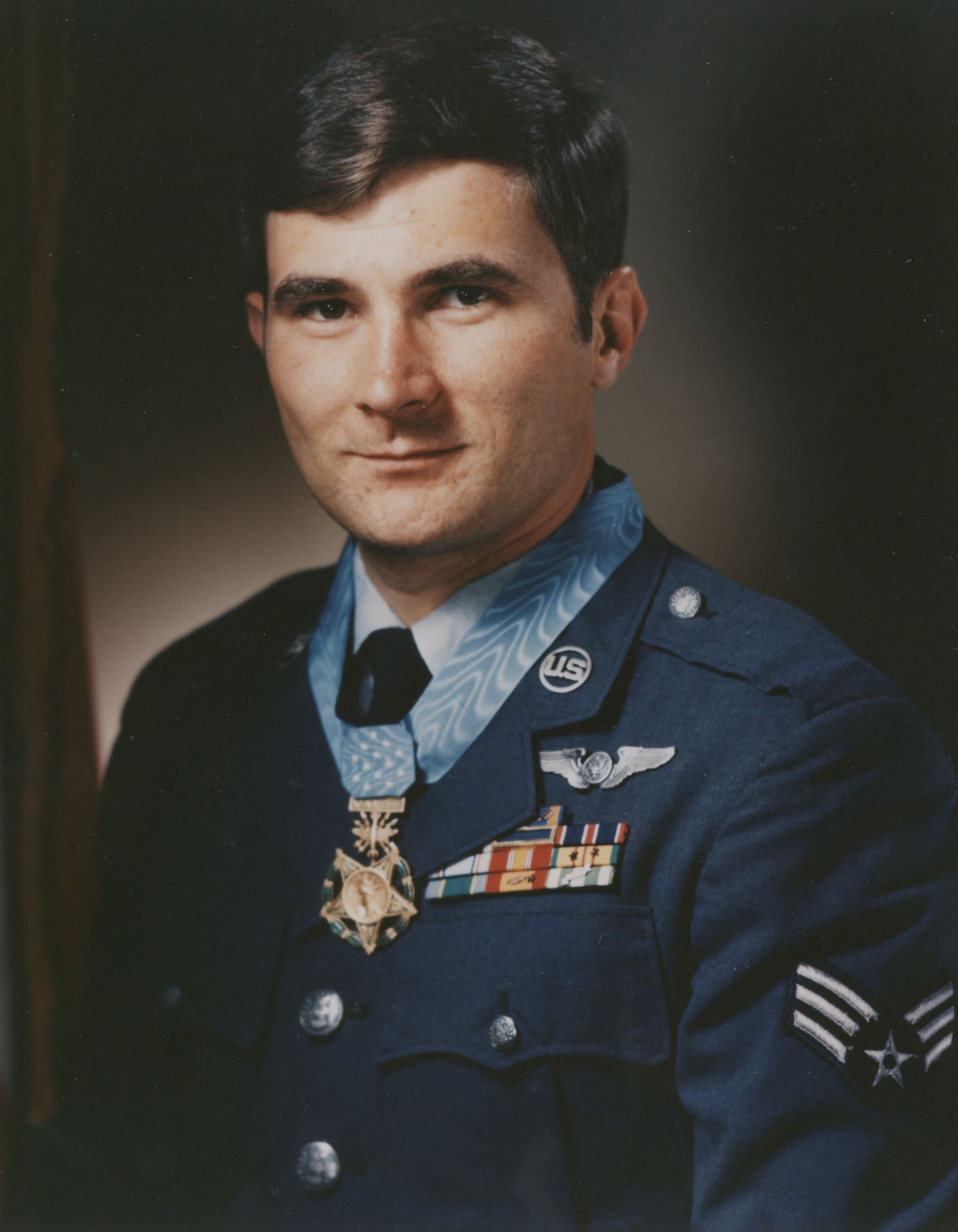John L. Levitow
(1945 - 2000)

 |
John Lee Levitow was a Jewish American airman who was awarded the Congressional Medal of Honor for valor during the Vietnam War.
Levitow was born on November 1, 1945, in Hartford, Connecticut, and joined the U.S. Air Force in June 1966.
Trained as a loadmaster, Levitow was asked to fill in for the regular loadmaster on an armed AC-47 called Spooky 71 with the responsibility to set the ejection and ignition timer controls on Mark 24 magnesium flares and pass them to the gunner for deployment.
On February 24, 1969, Spooky 71 was flying night missions near the Tan Son Nhut Air base area when Long Binh came under attack. Levitow's eight-man crew engaged the enemy and Levitow was passing flares, which burned at 4000 degrees, to the gunner when a mortar shell hit the plane's right wing and exploded inside the structure, raking the fuselage with flying shrapnel. Everyone was wounded, including Levitow, and the blast also jarred a flare loose, pulling the safety pin from the canister and arming the fuse.
Despite nearly forty wounds in his back and legs, Levitow saw the burning, loose flare rolling amid ammunition cans that contained 19,000 rounds of live ammunition. Through a haze of pain and shock, unable to stand up and fighting the aircraft's 30-degree bank angle, Levitow crawled to the flare and threw himself upon it. Hugging it to his body, he dragged himself back to the rear of the cabin and pushed it through the open cargo door an instant before it ignited, saving the aircraft and its crew. When the aircraft finally returned to the base, the extent of the damage became apparent - the AC-47 had more than 3,500 holes in the wings and fuselage, one measuring more than three feet long.
On May 14, 1970, President Richard Nixon presented Levitow the Medal of Honor for his galantry in combat.
Levitow died of cancer on November 8, 2000, and was buried at Arlington National Cemetery in Virginia. The John Levitow Award is the highest honor presented to a graduate of Air Force Enlisted Professional Military Education (PME).
His medal citation reads:
Sources: Jewish Recipients of the Congressional Medal of Honor;
Wikipedia;
Congressional Medal of Honor Foundation.
Photo: Public domain.


